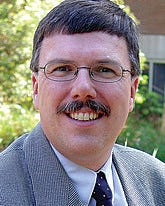The Challenges of Expansion
April 12, 2011
Mark Jones
[email protected]
|
Mark Jones |
I just returned from the South African Mining Indaba in Cape Town - a large mining conference focusing on commodities and the business issues of mining rather than the engineering issues. However, the show associated with the conference is growing and this is dominated by the engineering services aspect of the mining and mineral processing business. For an engineer like myself, who has spent all of his career in the engineering sciences and technology, it is interesting to hear a range of speakers (mostly eminent economists and investors) giving a perspective to this industry to which many engineers probably rarely give much thought.
A Harvard professor gave a sobering and insightful view of the global economy and the direction in which it is heading; the central thesis of which was the simple fact that there is a significant shift in the balance of economic power occurring in the world (and hence probably political power) which left his audience pondering the potential nature and geographical spread of the political powerbase over (say) the next 30-50 years. What does all this have to do with mechanical conveying which is the theme of this edition of Powder/Bulk Solids? Well, what is clear is that the need for minerals and resources is going to continue to grow. The economies that are heavily linked to the resource-based industries were, to a large degree, protected from the global financial crisis. Although there is still a risk that some of these economies, like Australia, are feeling some belated effects, it is fairly clear that confidence in the longer term is strong. This is one of the reasons BHP Billiton is looking to acquire quality assets on the projected strength and longevity of the resources boom.
A striking feature of the conference was just how little many of the speakers knew regarding the engineering involved in the extraction and processing industries and the significant challenges facing the engineering of handling and processing bulk solids. The engineering involved is a significant risk to investors but it is a risk that they seem to accept rather lightly. Perhaps we should be flattered that they put such trust in us engineers but I, for one, would feel more comfortable if these people made their decisions with greater technical knowledge.
To turn to some of the challenges faced by the technology, one of the biggest changes in attitudes I have witnessed over the last 20 years is the concern over energy usage and energy intensity. The issue of energy supply and the real costs of energy at a time when electrical energy will be in short supply have led to a real change in attitudes over the energy usage and a real desire to improve efficiency and minimize usage. This has led to scrutiny over the specific energy required to move bulk materials - no more so than in the case of belt conveyors. The desire to move greater quantities of materials over much greater distances with ever lower specific power consumptions has led to a real need for more research and development into more efficient belt conveying systems.
At Newcastle, TUNRA Bulk Solids has seen a real growth and greater pressure to improve the performance of belt conveying systems both in a conventional sense and in non-traditional areas such as high lift conveying (greater than 50 degrees from vertical). However, in all areas of conveying the theme is the same: lower power requirements while maintaining reliability.
The focus on growth in the minerals and mining industry, together with the clear need for technical personnel to deal with the materials handling challenges, will present industry with a very real problem: the supply of appropriately trained and educated technical professionals. The materials handling challenges inherent in the significant proposed expansion of production in the mining industry will require significant technical development and, most importantly, the people capable of meeting this challenge.
The major challenge for the future will be the supply of high-quality, well-educated technical personnel at a time when this area is not a popular career choice for young people. Recognition of these issues is of major significance and our business planners, economists, and investors would do well to recognize what potentially could be the ‘bottle neck’ to further expansion in the commodity-based industries.
Professor Mark Jones holds the Chair in Bulk Solids Handling at the University of Newcastle, Australia. He is also the director of the Centre for Bulk Solids and Particulate Technologies and director of TUNRA Bulk Solids Handling Research Associates.
You May Also Like



